
Battery Electric Vehicles (BEVs) are getting stiff competition from Fuel Cell Hydrogen and Electric Vehicles. The technology is making remarkable progress, riding on efficiency and reliability. For an automotive component that converts hydrogen gas into electricity, there is a lot that goes on beneath the surface. Hydrogen molecules are broken down into protons and electrons. Protons pass through a membrane, while electrons are diverted to generate direct current, which powers the motor. On the other side of the membrane, they combine with oxygen. As a by product, H20 is emitted. Here the efficiencies are credited to the clean air fed to the Fuel cell which in turn allows it to function efficiently.
In an ICE, we change the air filters after predefined service intervals, which result in clean engine intake and efficient performance. Similarly, fuel cells demand clean filtered air, which Freudenberg Filtration Technologies has made possible with its MicronAir filter series. Commenting on the Fuel cell technology, Felix Herberg, Sales Manager Automotive Filters at Freudenberg Filtration Technologies said, “Fuel cell vehicles are particularly well-suited for long distances thanks to their great range. Because electric cars are most attractive for shorter distances, this alternative drive technology perfectly complements the sustainable mobility mix of tomorrow." Filters here play a crucial role, he informs.
Felix Herberg Sales Manager Automotive Filters at Freudenberg Filtration Technologies
Fuel Cell Filters
Esta historia es de la edición May 2022 de Auto Components India.
Comience su prueba gratuita de Magzter GOLD de 7 días para acceder a miles de historias premium seleccionadas y a más de 9,000 revistas y periódicos.
Ya eres suscriptor ? Conectar
Esta historia es de la edición May 2022 de Auto Components India.
Comience su prueba gratuita de Magzter GOLD de 7 días para acceder a miles de historias premium seleccionadas y a más de 9,000 revistas y periódicos.
Ya eres suscriptor? Conectar
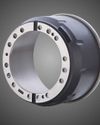
U.S. COMMERCE DEPARTMENT ISSUES PRELIMINARY DECISION ON TURKISH BRAKE DRUM SUBSIDIES
On December 06, 2024, the U.S. Department of Commerce announced a preliminary affirmative determination in the Countervailing Duty (CVD) investigation concerning certain brake drums imported from the Republic of Türkiye as per The Brake Report.

BHARAT MOBILITY GLOBAL EXPO 2025 THE COMPONENTS SHOW PREVIEW
The Bharat Mobility Global Expo 2025, slated for January 17-22, is ready to dazzle the world with its expansive and innovative display of automotive and mobility solutions, writes Ashish Bhatia.
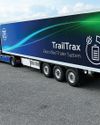
INTELLIGENT TRAILERS
Today's trailer customers enjoy access to a complete range of integrated solutions, writes Ashish Bhatia.
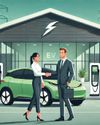
UNLOCKING THE POTENTIAL OF USED EVS IN INDIA'S GROWING EV MARKET
India's EV market, valued at USD 2 billion, is on the fast track to becoming the third largest globally by 2025. However, maintaining this momentum will depend heavily on developing a robust second-hand EV market
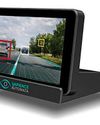
SAPIENCE HARNESSES AI FOR ROAD SAFETY
Sapience Automata is banking on Al-driven ADAS innovations to curb accidents, and improve fleet efficiency, writes Upendra Kasbekar.
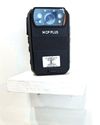
TRAFFIC SURVEILLANCE SOLUTIONS
CP Plus is offering innovative traffic surveillance solutions to enhance on-road safety. writes Richa Tyagi.

LEGACY BRAND RENEWED PURPOSE
As Godrej Enterprises Group celebrates its 127th anniversary, the company unveiled a bold vision to chart a sustainable and innovative path forward, writes Ashish Bhatia.
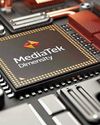
GLOBAL AUTOMOTIVE SOLUTIONS
Raghavan Sampath, Director of Business Development, India Business Development Division at MediaTek, shared the company's strategic approach of offering global automotive solutions, with Richa Tyagi.
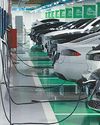
SOUTH KOREAN BATTERY MAKERS' DECLINING SHARE
Three South Korean electric vehicle battery makers saw their combined global market share fall from a year earlier in the first 10 months of 2024 amid robust growth of Chinese rivals, industry data showed on Monday.

UNO MINDA GPT-ENABLED MUSIC SYSTEM
Uno Minda Ltd. has introduced India’s first GPT-enabled Android music system, the WTUNES-464DN-GPT, revolutionizing the in-car experience.